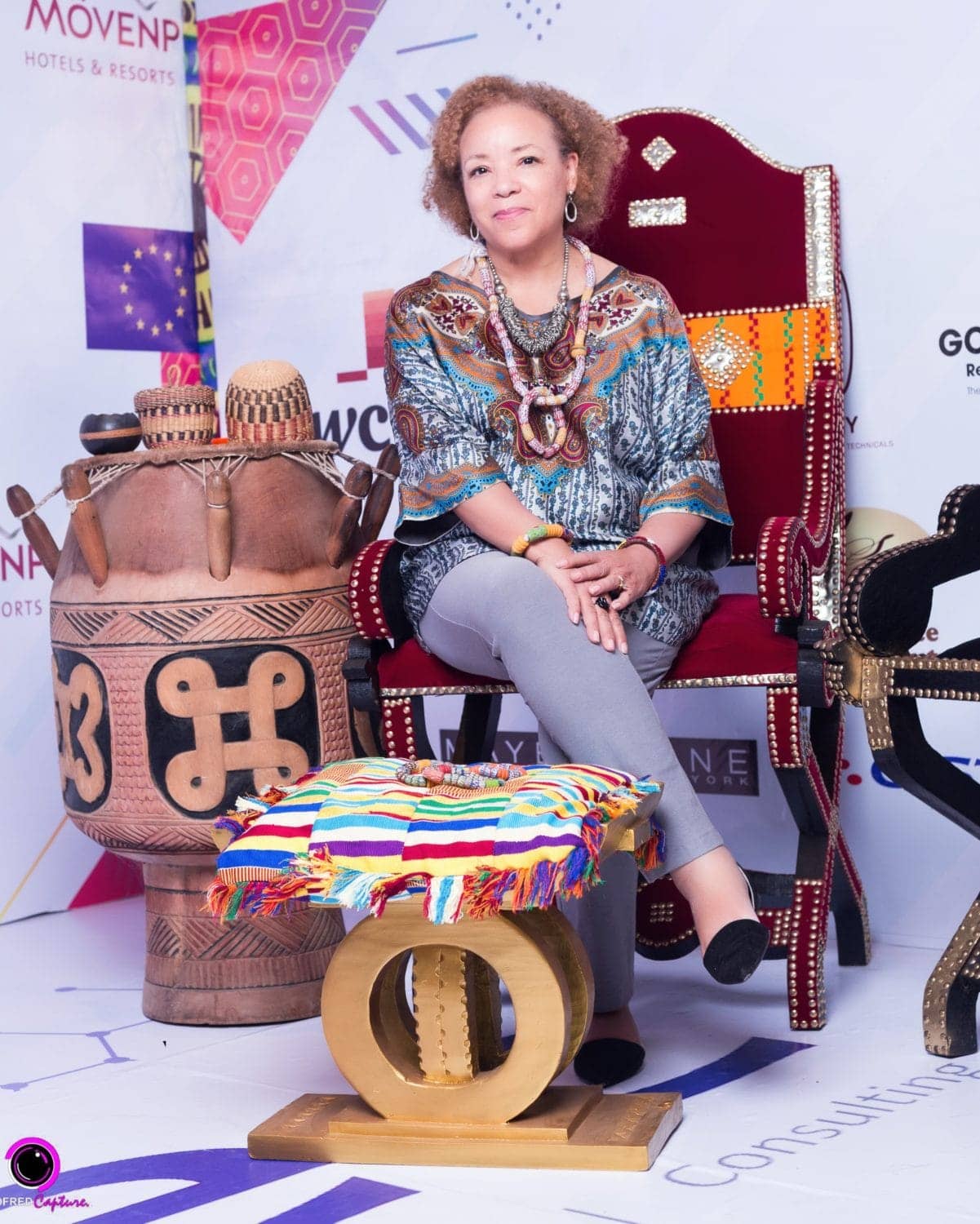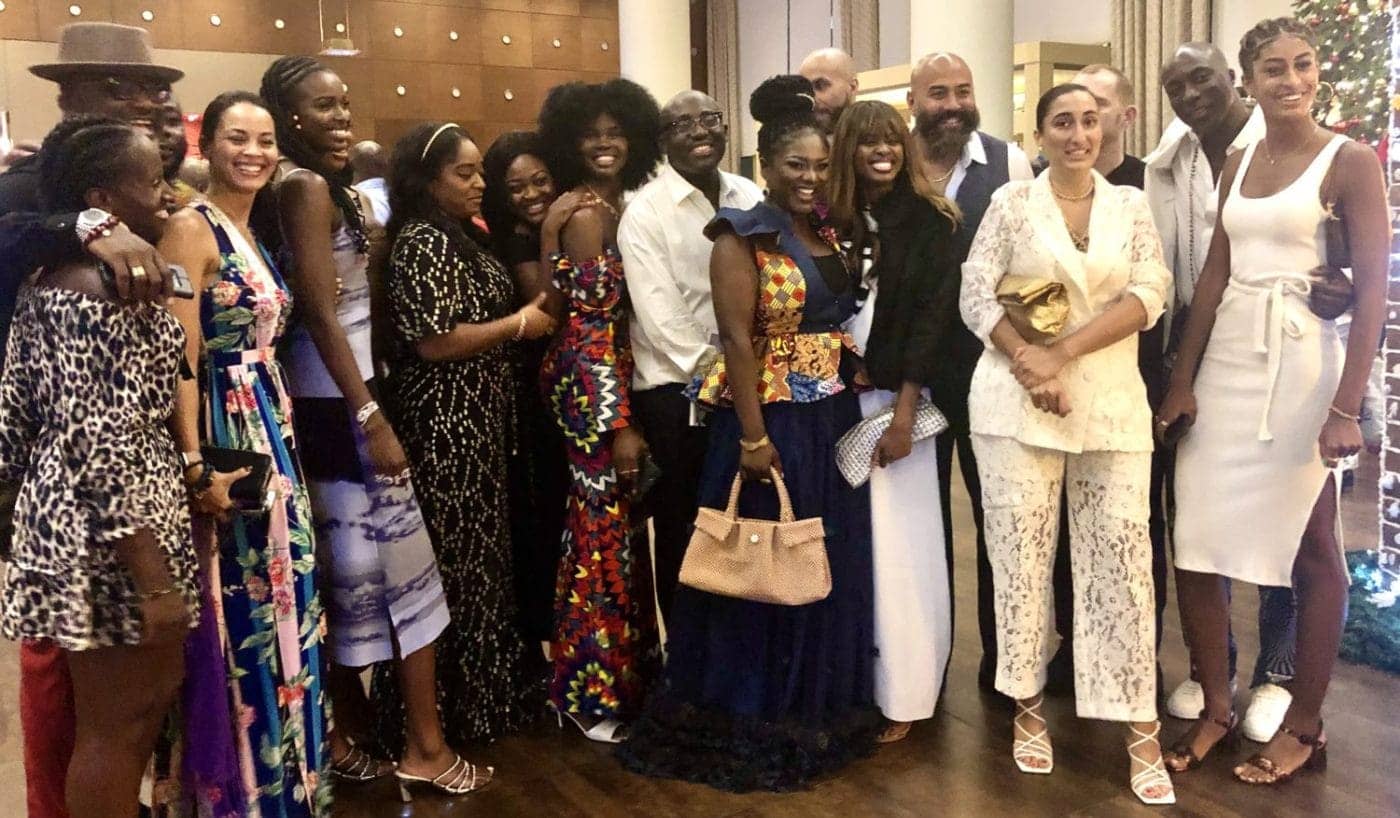
*Seeing you completes me and I exist because of you
by Linda Parker Pennington
Why I have faith for 2023
In January 2020, I returned from three weeks in Ghana, where I traveled for the Year of Return (400 years since the African slave trade began in 1619), people of African descent were invited to return to their ancestral homeland and reclaim their birthright. We found our connection to essence, our spirit, our oneness, our “Africanness.”
For a Black person, to experience the Motherland is a bit like a Muslim making a pilgrimage to Mecca once in their lifetime. There is really no way to describe the personal transformation and empowerment that comes from seeing and knowing who you are, where you came from and how it feels to be surrounded by people who look like you. Black people who created, built and ran everything. I shopped, ate at fabulous restaurants, enjoyed fancy clubs, opulent hotels, retreat centers and bustling marketplaces, all owned and operated by Black people.
So what did I see and learn in Ghana?
- I saw Kujichagulia – Self-Determination. Folks had agency, meaning they knew what they were doing and didn’t make excuses for not doing what needed to be done. Earlier today, Brotha Clint was telling me about his “Freedom Socks” that have watermelons on them. He said the watermelon is red, black and green, but there is a thin layer of white just underneath the outer layer that we have to break through to get to the outside. Well they don’t have that white layer in Ghana. There was a spirit of knowing who you are and speaking your truth. Not something that you thought you had to say to be accepted or to fit in. There was none of this “I’ll just get along to go along,” nonsense that happens in the corporate world here, where people are too afraid to speak out against injustice because they just want to keep their job and feed their family.
Sisters and Brothers, we can do this here!
- I witnessed Ujima – Collective Work and Responsibility. People were acting as a community, across the generations, building together and taking care of one another. They took care of me like family. Somehow I had lost my prescription glasses on my road trip to Cape Coast, so I could only see with my contact lenses. After 10 days I ran out of contact lens solution and had no idea where I could find some in Accra. That Sunday I was having brunch with an American Brother who had moved to Ghana eight years ago. I mentioned my dilemma, so after brunch he drove me to no fewer than eight pharmacies until we found one that was open and had contact lens solution. He thought nothing of it, saying simply, “It’s what we do here. We take care of each other.” I thought to myself, “right, that’s what we are supposed to do.”
- I saw Ujamaa everywhere – Cooperative Economics. The Ghanaian people are some of the most resourceful and entrepreneurial I’ve ever seen. Everyone has a hustle, meaning, they often have a day job and a side gig – maybe a second-hand shop at the local market, or they cut hair in their living room, or they grow food in their backyard and sell it on the corner. Many pool their money to buy property as a homestead for their extended family.
Sisters and Brothers, we can do this here! We know how, but we lost this knowledge in the Middle Passage and it was kept from us. We must reclaim it!
- In Ghana, at every turn, I saw Kuumba – the innate creativity that is expressed in Black people everywhere. There was a gala fashion show in a big hotel happening one night. I had no ticket and had to talk my way in (hey, I’m from New York, so it’s what I do). Once inside, I experienced a rich array of vibrant, contemporary, Afrocentric fashion, accompanied by African music with a vibe that had the models literally dancing down the runway. And Sisters, let me tell you, those boogying Ghanaian Brothers were finer than fine! They were like Ladysmith Black Mambazo in style!

As I drove around Accra, I saw hundreds of huge, glorious murals and historic statues celebrating African leaders and majestic architecture everywhere. There were art markets all over the place. For me art is a spiritual experience, so I was in Black Heaven every single day, from the moment I walked out my door.
- Umoja – Unity – was in ample supply. For my first week there, I stayed in a suburb of Accra with a family that consisted of four generations. The eldest daughter had emigrated to London and came back to her parents’ family homestead often, providing support for her family and the community, with her higher earnings from a good job abroad.
The house was filled with happy children, love, food, oft-told stories, rum and laughter.
Her siblings and cousins brought their children and grandchildren to visit, almost every day we were there. The house was filled with happy children, love, food, oft-told stories, rum and laughter. This feeling filled my soul and showed me what I’d been missing. I vowed to carry this spirit back with me.
- Ghana recharged my own sense of Nia, Purpose, by showing me what can be achieved with focus, intentionality, working together and drawing on our resilience and creativity to build together. I thought: we can do this to rebuild our Black San Francisco community and overcome the many hurts inflicted from decades of systemic oppression: redlining, urban renewal (which my father, who worked for the United States Department of Housing and Urban Development, called “Negro removal”), the loss of our thriving Black business community in Fillmore, Jonestown, Mario Woods, the list goes on. And yet, we have hope, a richness of talent and Black leadership here too. We can do this!
- And finally, Imani, Faith. I visited a huge church in Accra, led by Brother Ishmael Tete, who I had met in Oakland when he spoke at their sister church – the East Bay Church of Religious Science. Brother Tete’s church was infused with love and community. It was in fact, a “beloved community” of all generations, races, colors, tribes and languages. Although I knew no one there (other than Brother Tete who I hadn’t seen in four years) I felt like I was at home. I thought, “we can and we do have this same spirit in San Francisco.” Let’s do this. Let’s build a beloved community, like Dr. Martin Luther King Jr. envisioned for us.
Three years later, I have faith now because I see the wisdom and greatness of our ancestors in all my people. We are descended from kings and queens. I’ve seen how we have persevered through this pandemic, helping one another stay centered and whole, loved and held, learning and applying the self-care we’ve needed since we came to these foreign shores from our homeland.
We have so much to draw on from our ancestors, from our elders, from our many allies and from listening to our youth who will lead the way. It is an African proverb that says, “If you want to go fast, go alone. If you want to go far, go together.” Brothers and Sisters (and allies) we can do this and we will go far together. Now is the time.
Linda Parker Pennington is an entrepreneur, community activist, Bayview resident and proud mom. She coaches corporate, nonprofit and community leaders and their teams to change the world for good. Linda is a board member for the SF African American Chamber of Commerce and serves on San Francisco’s Disability and Aging Services Commission, appointed by Mayor Breed. Follow Linda on LinkedIn.





